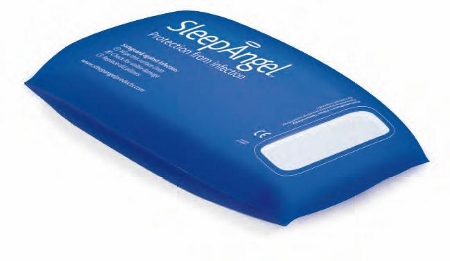In this article we look at how healthcare acquired infections can spread via pillows and other bed linen, and the innovative products that aim to help reduce the threat in our hospitals
Three years ago, a study led by Dr Arthur Tucker, a principal clinical scientist at Barts and The London NHS Trust, found that up to a third of the weight of a pillow could be made up of bugs, dead skin, dust mites and their faeces.
Bedding interiors colonised with bacteria become a reservoir of infection, posing an increased risk of hospital acquired infections
This makes them ideal breeding grounds for healthcare associated infections, with up to 30 bugs found living in a single pillow.
In the report, hospital-issue pillows had more than one million Staphylococcus hominus bugs, which can cause severe infections, per millilitre. Dr Tucker described the level as a 'biohazard', adding: "The presence of these bugs means they will be passed onto patients."
With the spotlight now firmly on infection prevention and control within healthcare settings, this research has seen a shift in focus, with trusts now opting to procure pillows and other bedding with built-in antimicrobial protection.
Mattresses, pillows and bed coverings are now available that are specifically designed to make it harder for bugs to collect and multiply. This, together with tougher cleaning regimes and decontamination measures, is helping to curb outbreaks.
Dr Tucker’s research showed that replacing a standard hospital pillow with an antibacterial version - in that case Gabriel Scientific’s SleepAngel pillows - meant they were far less likely to become contaminated on the outside, while testing negative for germs on the inside.
David Woolfson, co-founder of Gabriel Scientific, said: “Infection control and cross infection present a major problem for hospitals, greatly increasing the risk to health and causing considerable expense. Bedding interiors colonised with bacteria become a reservoir of infection, posing an increased risk of hospital acquired infections.
“Good practice in infection control in hospital should include the deployment of CE-marked infection control pillows, as well as diligence in cleaning and disinfection, together with the implementation of a pillow audit protocol.”
Good practice in infection control in hospital should include the deployment of CE-marked infection control pillows, as well as diligence in cleaning and disinfection, together with the implementation of a pillow audit protocol
Trusts that have already converted to SleepAngel pillows include the Royal Liverpool and Broadgreen University Hospital NHS Trust and Galway University Hospitals.
The pillows are hermetically sealed on all seams, providing a barrier to germs including MRSA and C.difficile. The pillow ventilates through a specialist filter, which is also a barrier to germs, bacteria and allergens.
In terms of cost, the pillows cost around three times that of standard reusable pillows, but last four times as long and only two are needed per hospital bed, rather than four. Laundry costs are also much less. Gabriel Scientific estimates that a 1,000-bed hospital could have around £380,000 a year by switching. The savings in comparison to disposable pillows are even greater at an estimated £908,000.
Other suppliers have also incorporated antimicrobial properties into pillow and pillowcase design, including the Sure-Check Pillows from Medline and the healthcare range from BioCote.
BioCote products use silver ion technology, which is incorporated into products as an additive at the time of manufacture, or in some cases applied as a coating post-manufacture. This offers antimicrobial protection for the expected lifetime of any product.
Many doctors and nurses acknowledge the shortcomings of standard fabric pillows with plastic covers in providing necessary patient care, comfort and hygiene standards that modern nursing techniques demand in the fight against cross infection
“The silver ions on the surface of a material treated with BioCote additives bind with microbes that come into contact with the surface and irreparably damage them, disrupting their normal cell function, which stops them from reproducing and finally results in the death of the cell,” explained a spokesman.
Thomas Kneale & Co also offers a range of wipe-clean pillows and duvets for hospitals and other healthcare environments. A spokesman said: “Many doctors and nurses acknowledge the shortcomings of standard fabric pillows with plastic covers in providing necessary patient care, comfort and hygiene standards that modern nursing techniques demand in the fight against cross infection.”

Anti-bacterial SleepAngel pillows were developed to help reduce the spread of infections in healthcare settings
